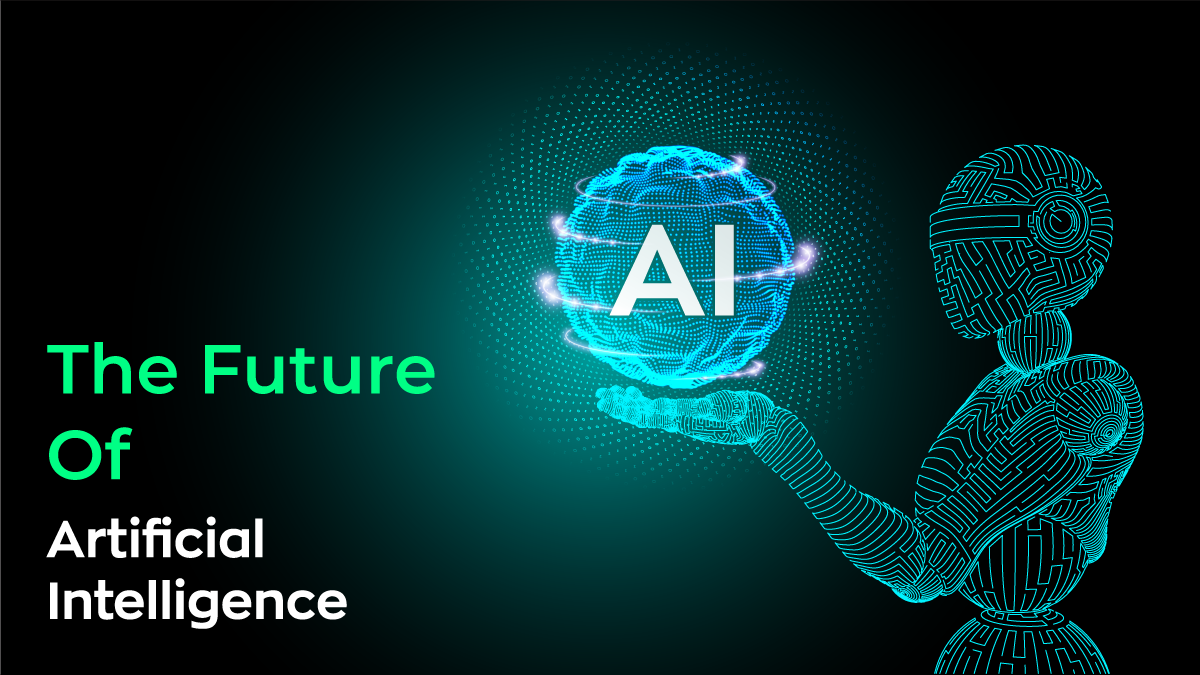Future of Artificial Intelligence
Artificial Intelligence (AI) has emerged as a groundbreaking field in computer science, poised to become a cornerstone of transformative technologies such as big data, robotics, and IoT. AI’s rapid evolution has turned science fiction into reality, embedding itself deeply in our daily lives through innovations like virtual assistants, chatbots, and autonomous vehicles. This blog explores the future of AI, its potential impact on human life, and the myths surrounding it.

Current State
AI refers to the ability of machines or computer-controlled systems to perform tasks that typically require human intelligence. It can be categorized into three levels based on capabilities:
- Narrow AI (Weak AI): Focused on specific tasks like voice assistants and self-driving cars. This is the current stage of AI.
- General AI: Hypothetical machines capable of performing any task with human-like intelligence.
- Super AI: Advanced systems that surpass human cognitive abilities, capable of performing any task a human can do.
Currently, AI operates at the Narrow AI level, designed to excel in specific areas without generalizing knowledge across domains.
Download New Real Time Projects :-Click here
Myths About Advanced
- Superintelligence by 2100 is a certainty.
The truth is, we cannot predict when—or if—superintelligence will emerge. Estimates from AI experts vary widely, with some predicting human-scale AI by 2045 and others believing it could take centuries or more. - AI will replace all human jobs.
While AI and automation are transforming industries, they are not simply replacing jobs but creating new ones. Machines require human oversight, and AI advancements are unlocking opportunities in areas like data analysis, model training, and system optimization. - Super-intelligent computers will outperform humans at everything.
At present, only Narrow AI exists, excelling in limited tasks like speech recognition or recommendation systems. General and Super AI are still in developmental stages, and their impact remains speculative. - AI operates without human intervention.
AI systems still rely heavily on humans for data preparation, bias elimination, and model training. Once deployed, they improve through experience, but human involvement remains crucial.
Risks Associated with AI
- Programming for Destruction:
Autonomous weapons programmed for harmful purposes could cause mass casualties, especially in the wrong hands. An AI arms race could lead to uncontrollable warfare, making regulation essential. - Goal Misalignment:
Misaligned objectives between humans and AI could lead to unintended consequences. For instance, instructing an autonomous vehicle to reach a destination “as quickly as possible” without prioritizing safety could result in traffic violations or accidents.
The Future Impact of AI Across Sectors

1. Healthcare
- AI will revolutionize disease diagnosis, drug discovery, and personalized patient care.
- Challenges include ensuring widespread adoption and addressing ethical concerns like data privacy.
2. Cybersecurity
- AI will enhance threat detection, automate rule-based processes, and trace cyber-attack origins using NLP.
- However, attackers may exploit AI to launch sophisticated and hard-to-detect attacks.
3. Transportation
- AI advancements will improve vehicle autonomy, reduce pilot workload, and optimize public transport systems.
- Risks include over-dependence on AI systems and addressing public safety concerns.
PHP PROJECT:- CLICK HERE
4. E-Commerce
- AI will drive automation in warehouses, personalized shopping experiences, and chatbot interactions.
- These innovations will enhance user satisfaction and streamline logistics.
5. Employment
- AI tools like Rezi and Jobseeker are transforming the hiring process by improving resume creation and job matching.
- AI is making recruitment efficient while creating roles in AI management and development.
Other sectors like manufacturing, finance, and entertainment will also experience significant AI-driven changes.
- future of artificial intelligence in india
- future of artificial intelligence essay
- future of artificial intelligence ppt
- future of ai examples
- future of artificial intelligence pdf
- future of artificial intelligence speech
- future of artificial intelligence group discussion
- the future of artificial intelligence speech for 2 minutes
🎓 Need Complete Final Year Project?
Get Source Code + Report + PPT + Viva Questions (Instant Access)
🛒 Visit UpdateGadh Store →